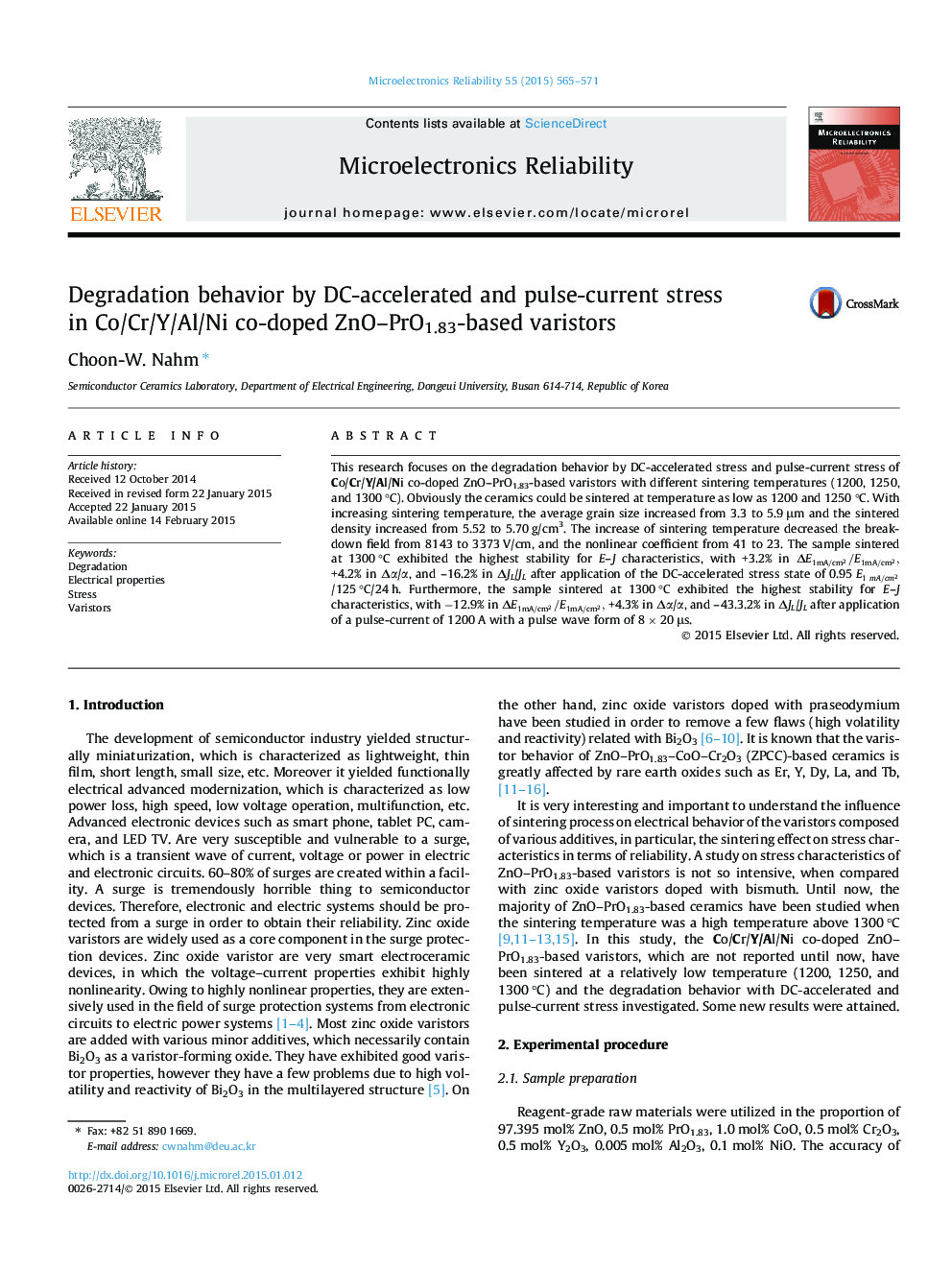| Article ID | Journal | Published Year | Pages | File Type |
|---|---|---|---|---|
| 546745 | Microelectronics Reliability | 2015 | 7 Pages |
•Co/Cr/Y/Al/Ni co-doped ZnO–PrO1.83-based materials with simple microstructure.•Co/Cr/Y/Al/Ni co-doped ZnO–PrO1.83-based materials with good varistor properties.•Co/Cr/Y/Al/Ni co-doped ZnO–PrO1.83-based varistors with excellent stability.
This research focuses on the degradation behavior by DC-accelerated stress and pulse-current stress of Co/Cr/Y/Al/Ni co-doped ZnO–PrO1.83-based varistors with different sintering temperatures (1200, 1250, and 1300 °C). Obviously the ceramics could be sintered at temperature as low as 1200 and 1250 °C. With increasing sintering temperature, the average grain size increased from 3.3 to 5.9 μm and the sintered density increased from 5.52 to 5.70 g/cm3. The increase of sintering temperature decreased the breakdown field from 8143 to 3373 V/cm, and the nonlinear coefficient from 41 to 23. The sample sintered at 1300 °C exhibited the highest stability for E–J characteristics, with +3.2% in ΔE1mA/cm2/E1mA/cm2,E1mA/cm2/E1mA/cm2, +4.2% in Δα/α, and –16.2% in ΔJL/JL after application of the DC-accelerated stress state of 0.95 E1mA/cm2 /125 °C/24 h. Furthermore, the sample sintered at 1300 °C exhibited the highest stability for E–J characteristics, with −12.9% in ΔE1mA/cm2/E1mA/cm2,E1mA/cm2/E1mA/cm2, +4.3% in Δα/α, and –43.3.2% in ΔJL/JL after application of a pulse-current of 1200 A with a pulse wave form of 8 × 20 μs.
Graphical abstractFigure optionsDownload full-size imageDownload as PowerPoint slide
